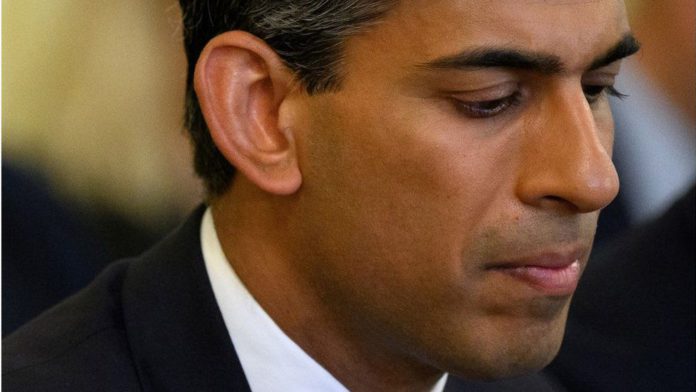Rishi Sunak has been accused of failing to act to save billions of taxpayers’ money that has been used to pay interest on government debt.
The National Institute of Economic and Social Research think tank said the losses were due to the Treasury failing to insure against interest rate rises.
It meant higher than necessary payments on £900bn of reserves created through the quantitative easing (QE) programme.
The Treasury said it was the Bank of England’s role to decide QE measures.
The Bank of England is independent from the Treasury.
The Treasury said NIESR’s proposal would undermine this independence and be “hugely damaging” to the credibility of how public finances were managed.
READ MORE:
“Proposals such as this risk undermining the independence of the Bank of England and forcing commercial banks to swap reserves for gilts would be an act of financial repression,” a Treasury spokesperson said.
NIESR’s Prof Jagjit Chadha, told the Financial Times that Mr Sunak’s failure to act had left the country with “an enormous bill and heavy continuing exposure to interest rate risk”.
The Bank of England created £895bn of money through quantitative easing. Most of this was used to buy government bonds from pension funds and other investors.
When those investors put the proceeds in commercial bank deposits at the Bank, it had to pay interest at its official interest rate.
Last year, when the official rate was still 0.1%, NIESR said the government should have insured the cost of servicing this debt against the risk of rising interest rates.
It said interest payments have “now become much more expensive” and it estimates the loss over the past year at around £11bn.
“Such a lost opportunity is an unnecessary cost to the public finances at a very difficult time,” the think tank said.
It suggested converting the debt into government bonds with longer to pay it back.
“It would have been much better to have reduced the scale of short-term liabilities earlier, as we have argued for some time, and to exploit the benefits of longer-term debt issuance. This is very much a question for the Treasury to answer,” said Prof Chadha.
The Treasury said it would not have been commercially viable to convert such a high level of debt.
“The £11bn figure is based on the implausible assumption that it would be possible to undertake action of this scale in a single transaction,” it added.

